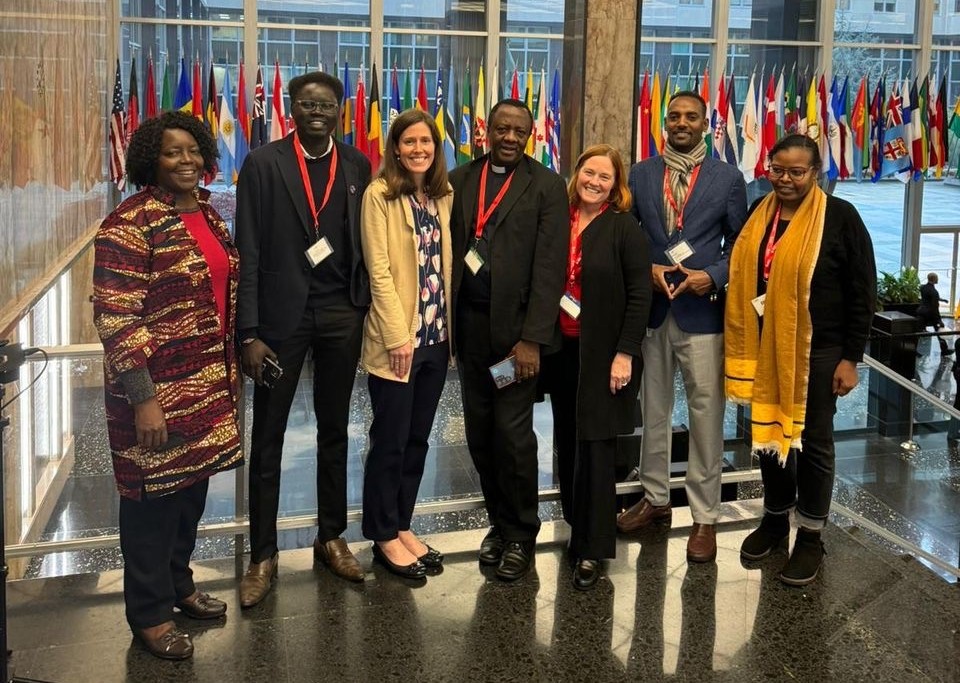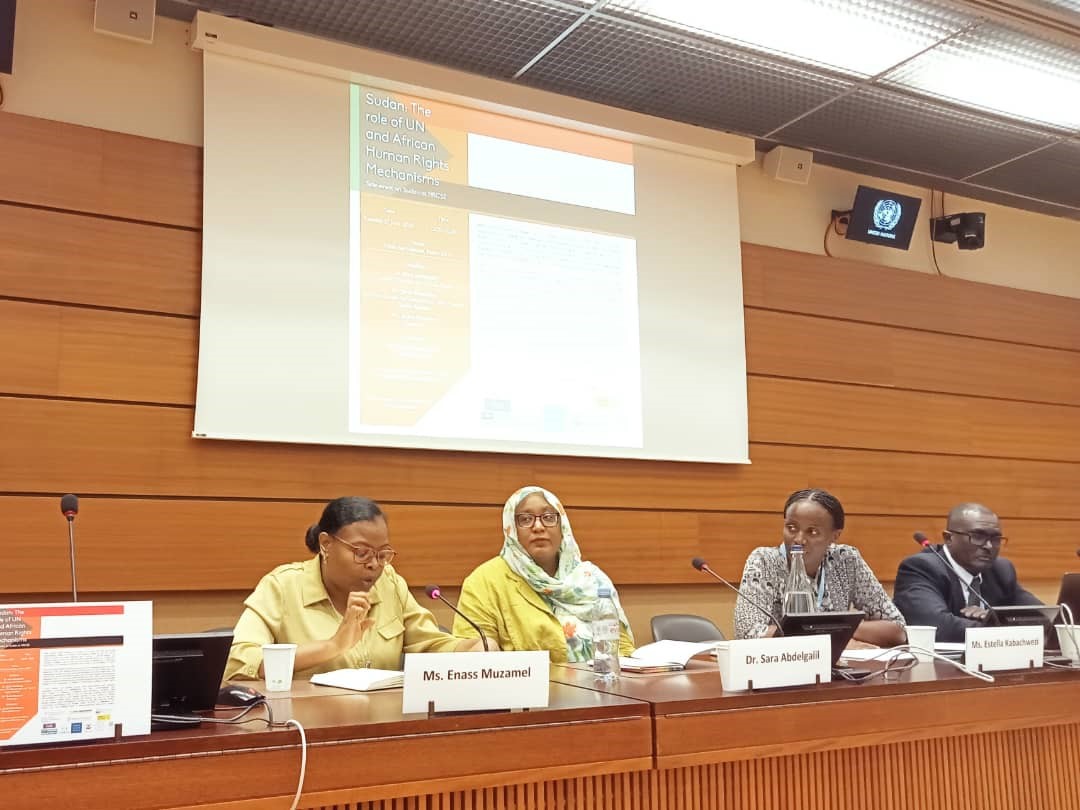
Enass Muzamel Courtesy photo
In December, AFSC brought a delegation of peacebuilders from Africa to Washington, D.C. We were there to meet with State Department officials, civil society, and the public to discuss ways to end violent conflict in the Horn of Africa region.
The delegation included Enass Muzamel, co-founder of the civil society organization Madaniya in Sudan, which is part of AFSC’s Salama Hub. Enass passionately spoke about the almost “forgotten” conflict in Sudan. As a defender of democracy and human rights and an activist working to stop gender-based violence, Enass brought hard facts, personal experience, and practical suggestions to end the suffering of the people of Sudan and the greater Horn of Africa.
It was with shock and disbelief that AFSC and colleagues learned of the passing of Enass Muzamel on Feb. 4. We are deeply saddened and hold Enass’ family, friends, and all who worked with her in the light. May her powerful spirit rest in peace.

Enass (far right) with AFSC staff and Africa delegation members during advocacy visits to Washington, D.C. AFSC Salama Hub
Enass was an integral part of the struggle for a just and peaceful Sudan and the greater Horn of Africa. During the advocacy week in Washington, D.C., Enass made an impact on the audiences on Capitol Hill, the State Department, the D.C. civil society organizations, and the public. She also spoke to several media outlets on the Sudan crisis.
Enass helped start Mandaniya in Sudan to support active participation among women and youth in their communities and in policymaking. Her efforts to promote civic engagement began back in 2019 when she was instrumental in the pro-democracy movement that agitated for democracy, justice, and inclusion in Sudan.
When the most recent Sudan conflict broke out in April 2023, Enass was forced to flee Khartoum. However, she did not relent in advocating for the inclusion of women in the peace process at the local, national, and regional levels. She engaged with different audiences around the world on the conflict in Sudan—sometimes risking her own safety—and consistently advocated for a cease-fire and peace agreement through an inclusive negotiation process.

Enass (first from left) speaks at a conference in Geneva. Courtesy photo
She continued to support critical humanitarian relief to the traumatized people of Sudan. Enass connected survivors of sexual violence with medical support, medicine, and basic services. In the face of a worsening humanitarian crisis, Enass kept calling on the international community to act in solidarity with human rights defenders who continue to push for an end to the violence in Sudan.
AFSC holds Enass dearly in our hearts and memories. She will always remain a shining light to her peers, all who work to eradicate all forms of gender-based violence, and all who push for justice and a violent-free Sudan, Africa, and world.
We thank Enass for her selfless service to humanity.